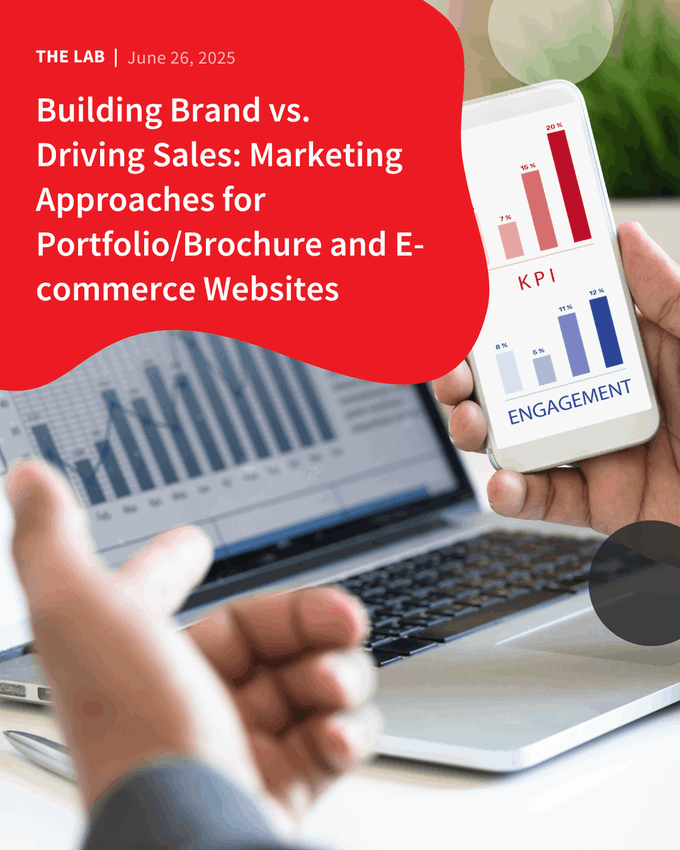Skills don’t matter.
But with a good online presence, you are unstoppable.
Websites are the technological footprint you leave on people’s screens. If it doesn’t interest your audience, it will just be another road less travelled. With the right mix of visual components and functional features, your expertise becomes the icing on the cake.
Let’s explore how we can make that happen.
Define Your Brand Identity
Who you are as a brand is the first step to building an online presence. Your customers will need to know who you are before they entrust their money to you. A well-known brand that is trustworthy and reliable reflects its values, skills, and offerings to its clients. Answer these questions:
- What is my unique value proposition?
- Who is my target audience?
- How do I want to be perceived?
After you answer all these questions, you’ll be able to properly shape your brand identity. Keep in mind that it’s not all about logos, fonts, and colours (although those are important, too!), but communicating who you are and what you can offer in a way that will connect with potential customers.
Once you’re able to define your brand identity, it’s time to optimise all of your online platforms. Make sure that your branding is consistent on your website, social media, and Google Business profile. A cohesive brand encourages you to build consumer trust and recognition, so you can attract more and retain more clients.
Develop a Professional Website
The first impression you will leave for your potential clients almost always comes from your website. To make it last, your website needs to be professional, user-friendly and aligned with your brand identity.
Here are a few tips:
- Design with your audience in mind: Your website should cater to your clients’ needs. Make sure it’s user-friendly, with clear calls-to-action (CTAs) that direct visitors, whether they are scheduling a consultation or accessing a resource.
- Mobile responsiveness: More and more people are accessing websites on their phones, so it’s crucial that your site looks great and functions well on all devices.
- Fast loading times: Slow websites can deter potential clients. Ensure your website loads quickly to keep visitors engaged.
And above all, your website should present you, your expertise, and the value you provide. Be sure to utilise the following: your About page to feature your background, achievements, and qualifications; a Services page to fully outline your offerings; and a Blog or a Resources page to share relevant news and insights to the industry you’re in.
Optimise for Search Engines (SEO)
Having a beautiful website is only half as effective if it’s not searchable. Your potential clients need to be able to find your website when they search for the services you offer. Search engine optimisation (SEO) involves ranking your website higher in the search engine, so people can easily discover you and your brand.
It takes a lot of time to optimise a website and it’s often highly technical. But it doesn’t mean you can’t do it on your own. To start, here are a few SEO basics:
- Keyword research: Determine your keyword search terms—words or phrases your target audience uses to search for you. Add those keywords to your website content.
- Optimised meta tags: Incorporate your primary keywords into your meta titles and descriptions to enhance click-through rates.
- Create high-quality content: Search engines favour fresh and relevant material. Consistently refresh your blog with informative articles that tackle challenges and pain points your audience encounters.
- Backlinks: Backlinks are used on other reputable websites that bounce back to your own. These can give a significant boost to your SEO.
It doesn’t stop here. SEO requires constant monitoring and optimising of your content on your own website and on others. This is what keeps you active and catches Google’s attention. Consider hiring an SEO expert to further enhance your website’s searchability.
Leverage Content Marketing
Content marketing showcases your expertise, educates your audience, and attracts new leads. It is one of the most effective ways to market yourself as a brand. By consistently creating valuable content that addresses the needs of your target audience, you position yourself as a thought leader in your industry. Here’s how to get started:
- Blog posts: Write articles that answer common questions your clients have or discuss trends in your field. For example, if you’re a business consultant, you could write about how companies can navigate economic challenges.
- Case studies: Share detailed examples of how you’ve helped clients solve problems. Case studies not only showcase your expertise but also demonstrate the tangible results you can deliver.
- Whitepapers and eBooks: Making long-form content takes your brand a step higher. Whitepapers or eBooks delve into a topic in a comprehensive way, plus, it doubles as a lead magnet to help grow your email list.
- Videos and webinars: Video is still the most engaging form of content, whether you’re on a desktop or handheld device. You can connect with your audience on a more personal level and you can express yourself more freely and creatively.
Remember, the goal of content marketing is to provide value. The more you help your audience, the more they’ll see you as a trusted authority.
Engage on Social Media
Don’t just stop at posting, you need to be interacting with your potential clients on your social media. Here’s how the best consultants excel with their social media presence:
- Choose the right platforms: Go where your audience is. Focus on the platforms where your potential customers spend the most time. For example, LinkedIn remains number one as the go-to for consultants.
- Post consistently: Share regular updates that provide value to your audience. This could be blog posts, industry news, or even short tips.
- Engage with your audience: Don’t just post and disappear. Respond to comments, participate in relevant discussions, and connect with other professionals in your field.
Social media is also a great place to share client testimonials and success stories, which brings us to our next point.
Collect and Showcase Client Testimonials
Your online proof is only half the battle to your marketing skillset. Your potential clients will want to know that you can deliver results…your client testimonials will prove that. After completing a successful project, don’t forget to ask for a testimonial. Your clients will happily provide you with one and will highlight some features in your service you never thought of. You can then add them to your website and feature them on your social media.
Case studies are also counted as proof of results, but client testimonials are more authentic and personal. Together, they will boost your credibility and trustworthiness to a wider network of potential clients.
Your Path to a Stronger Online Presence: Key Takeaways for Success
People rely on consultants to make the best decision for their business. To be that person, you have to look reliable. You can build a stronger online presence by brand definition, having a professional and optimised website, leveraging content marketing, engaging on social media, and showcasing client testimonials.
Building your online presence requires grit, dedication, and consistency. But with the right tools and strategies, you can skyrocket your career to further expand your reach to potential clients. When you define your brand identity, develop a professional website, optimise the use of search engines, leverage content marketing, engage on social media, and showcase your client’s testimonials, you position yourself as an authority in your field.
Ready to elevate your online presence? Schedule a Digital Marketing Strategy Session with us today and start making a lasting impact!








